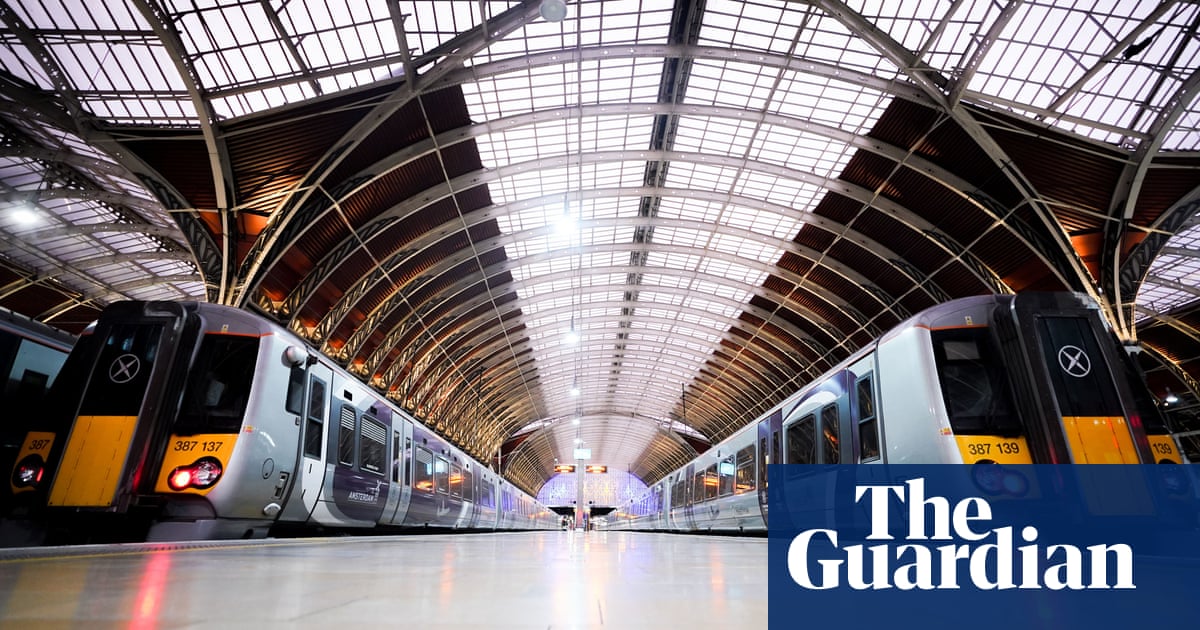
Rail unions have dismissed the government’s claim that big savings are needed because of a permanent decline in use since the pandemic, citing official data that showed demand creeping above 90% of pre-pandemic levels during some days late last month.
Aslef, the train drivers’ union, is demanding a meeting with transport secretary Grant Shapps to discuss the future of the industry, stating that ministers are opting for “grandstanding” over an acceptable, gradual plan to modernising the railways.
Shapps has previously said that Covid “changed travel habits” and that ticket sales were down 25%. He has said that the taxpayer is keeping the railway running at a cost equivalent to £600 a household.
However, Simon Weller, the union’s assistant general secretary, said that it was “nonsense” to suggest that the railways would not recover to pre-pandemic levels. “What they’re saying, that the railway is irrecoverable and that working from home has completely changed the landscape of the railway, is not being borne out by the facts,” he said. “The government’s own figures are saying it’s returned to 92% on some weekdays. What we’ve also seen is a big increase in leisure weekend travel.
“There is another aspect in other parts of the country. Some operators have reduced their timetables to about 75%. This is because they haven’t got an agreement for train drivers to work overtime. The reason there’s been a reduction isn’t because there’s a reduction in footfall – there’s a reduction of available resources to actually run the timetable. Pre-pandemic, I would say that 15% of the trains [were running] on overtime.”
He said that the union now needed to “talk to the minister” because of a lack of progress over new pay deals with some rail companies. He said it was “irritating” that ministers had been espousing levelling up at the same time as holding down wages. “Boris Johnson is talking about a high-wage economy. We don’t get a high-wage economy by people’s pay going backwards. What’s the point of levelling down?”
However, a Whitehall source said Aslef was “misleading the public” and had cherrypicked statistics. “Over the month of May passenger levels were at 80% of pre-pandemic levels, and over the past three months at about 75% of pre-pandemic levels,” they said.
Official Department for Transport (DfT) statistics show that passenger numbers reached 90% of pre-Covid levels on 19 May and stayed above the 90% mark for three days. However, the 90% mark has not been reached since.
It comes as Aslef plans strike action, which coincides with proposed walkouts by two other train unions later this month. Aslef represents train drivers and has announced limited strike dates at three companies, including a 24-hour walkout on Greater Anglia on Thursday 23 June. It will stop all services in the region, including the Stansted Express. Croydon Tram drivers will stage two 48-hour strikes on 28-29 June and 13-14 July, and Hull Trains drivers will strike on Sunday 26 June. It is balloting a further nine train operating companies for industrial action.
Meanwhile, rail workers from the RMT union are due to strike on 21, 23 and 25 June, with warnings that the impact of the strikes will have an effect on non-strike days. The railway is expecting to run about 20% of normal services between 7am and 7pm.
The Transport Salaried Staffs’ Association (TSSA) union, whose members manage control rooms, signalling and power for train operators and Network Rail, has launched its first strike ballot, while the Associated Society of Locomotive Engineers and Firemen (Aslef) union has called the first regional walkouts by drivers.












